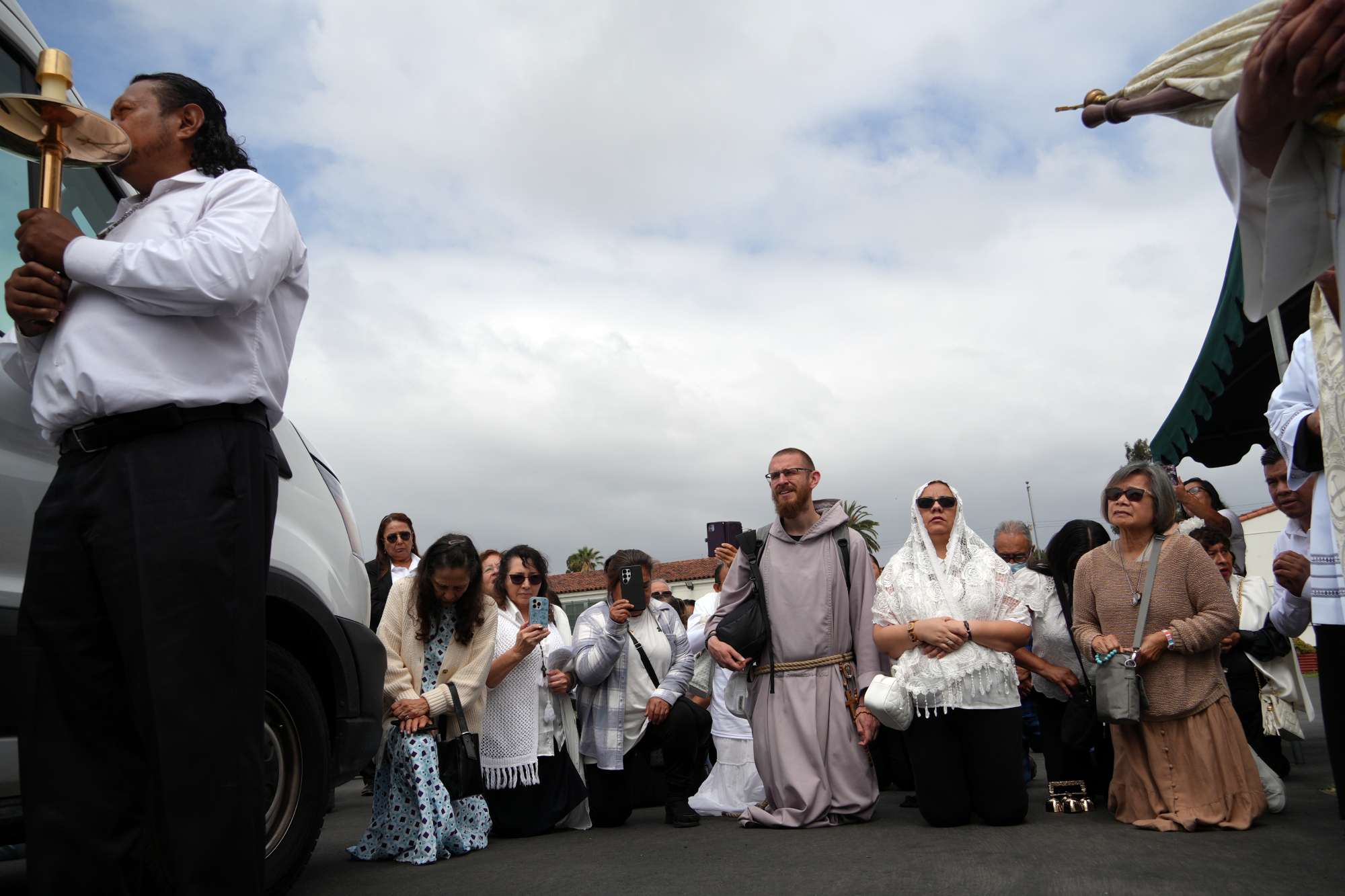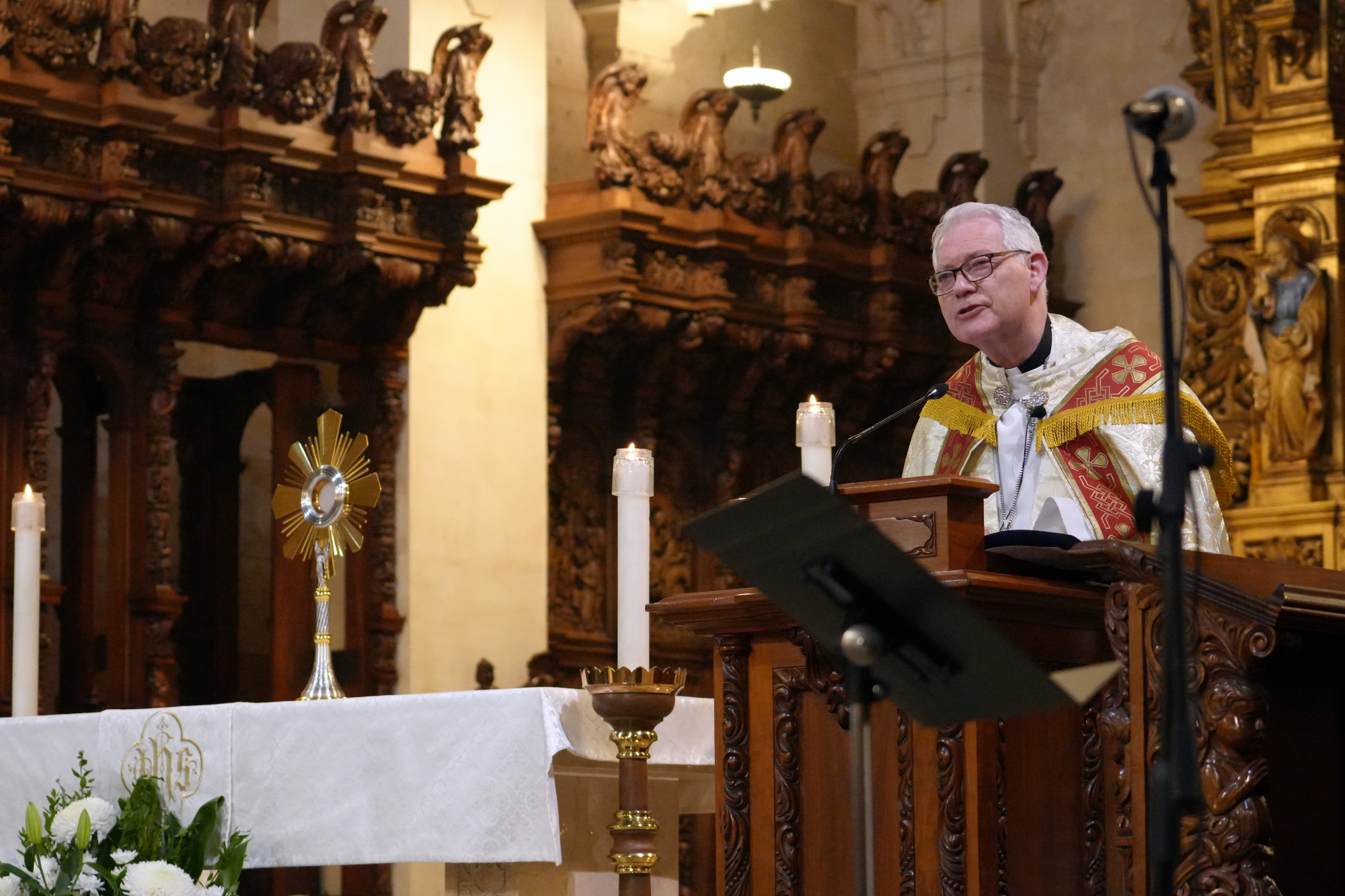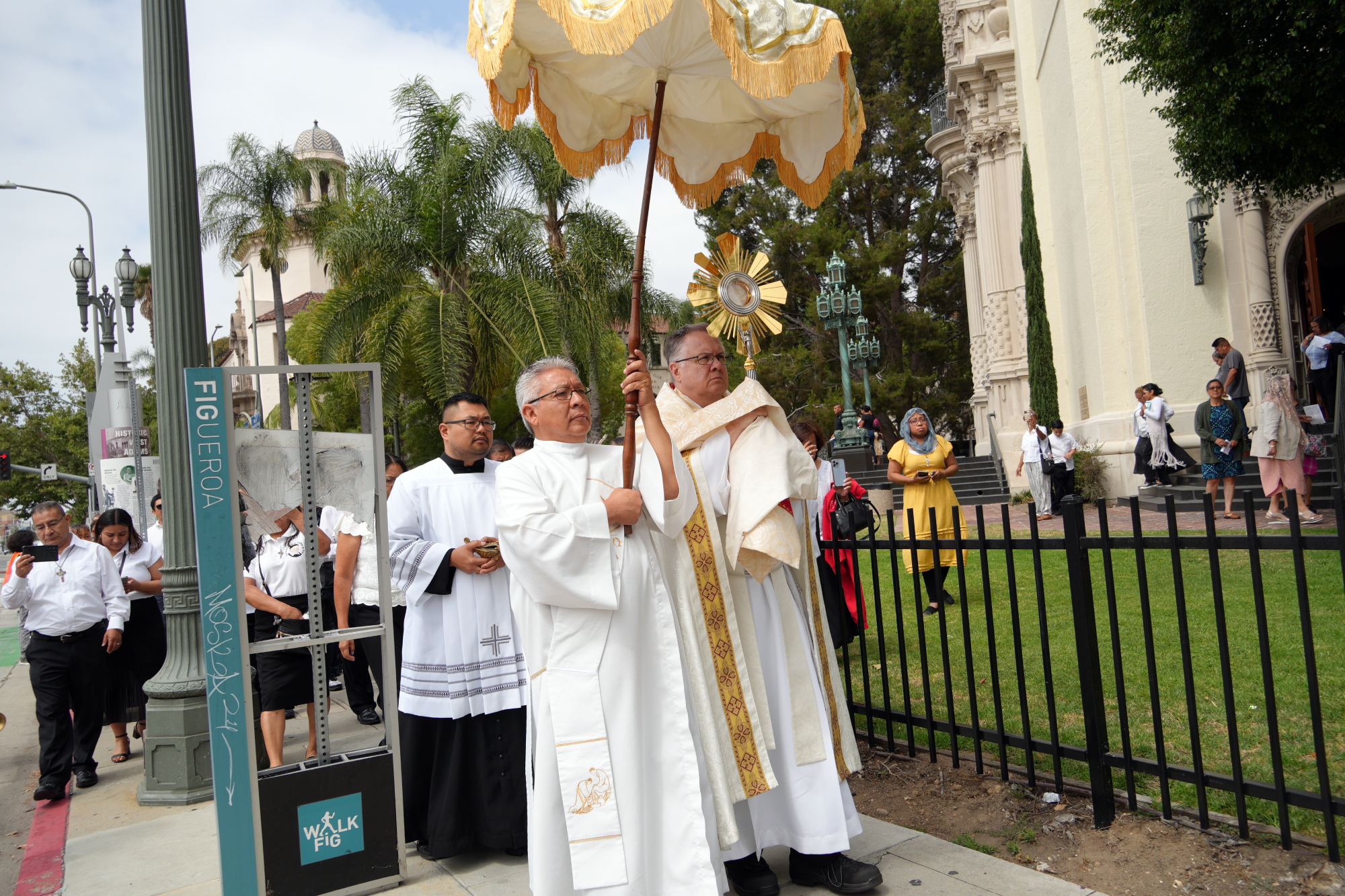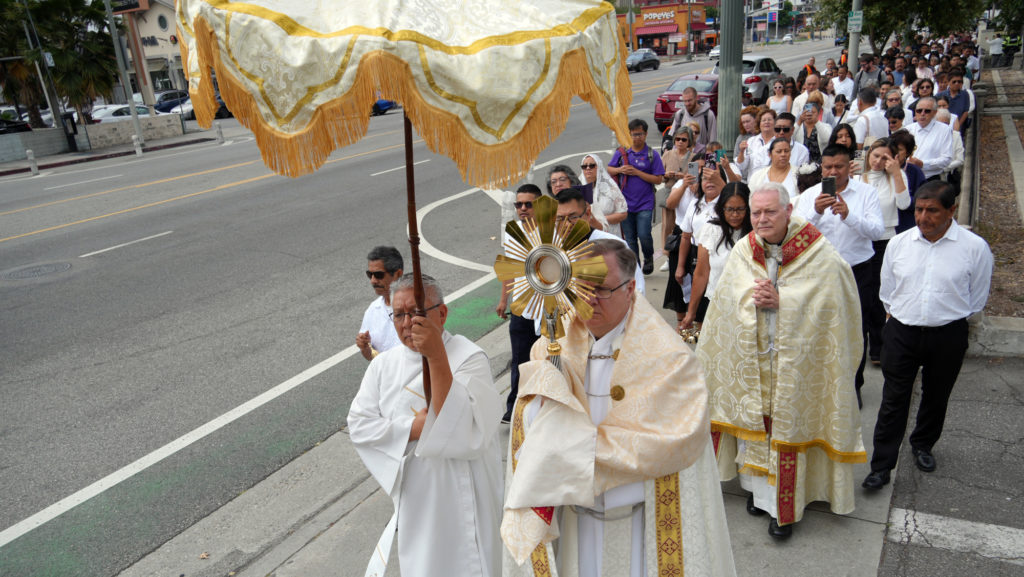Even as the National Eucharistic Pilgrimage made a prayer stop at St. Vincent DePaul Church near downtown Los Angeles on June 21, the fear and tensions from recent raids by the U.S. Immigration and Customs Enforcement (ICE) agents reared their head.
After singing the Spanish adoration hymn “Bendito, Bendito Sea Dios” (“Blessed, Blessed Be God”), parishioners kneeled in front of the Blessed Sacrament outside the church, as the national pilgrimage began its second day in LA with a Eucharistic adoration session.
But while Catholics venerated the Eucharist as it progressed from the school’s parking lot to the street and into the church, Lorena, an undocumented parishioner at St. Vincent DePaul, received a message from her 19-year-old daughter, who was selling candles outside.
ICE had been roaming nearby.
Her daughter had texted her in Spanish: “If you come out of Mass, I’ll call a Lyft for you because I don’t want you to walk. ICE passed a while ago.”
The weight of ICE’s presence overwhelmed Lorena. Though she shared that she “doesn’t cry in public, or in front of her peers,” she cried while telling Angelus her trust in the Lord wouldn’t permit the fear to get to her, allowing her to help others in her immigrant community.
“As a leader, I must strengthen my brothers and sisters,” said Lorena, who leads a Bible study at St. Vincent DePaul. “If the Lord has made me free, then I am truly free.
“It’s a calling from God, to persevere, to continue.”

In fear of the mass raids, another parishioner, who did not want to be identified, said he was afraid to show up to the pilgrimage. But in the presence of the Eucharist, his fear went away.
“I told our Lord, thank you for allowing me to be on the side of the storm, for the strength, and for feeling strengthened in his holy name.
“God’s timing is perfect.”
Despite the tension, plenty of the faithful turned out to worship the Lord.
LA Auxiliary Bishop Matthew Elshoff reminded the faithful of Christ’s call to compassion, regardless of one’s status. Referring to the Gospel, he said, “In the words of Jesus, whatever you do to the least of my brothers and sisters, regardless of race, color, social status, documented, undocumented, you do to me.
“As one priest in the Archdiocese of Los Angeles recently wrote, through the body and blood of Christ, we are tasked with transforming our society into a reflection of the true face and heart of Jesus — where all people feel loved and valued as human beings.”
After adoration and prayer ended, the Eucharist was carried outside to Figueroa Street.
A family from Indiana, originally from Mexico, traveled three days to join the Eucharistic pilgrimage, passing through Utah and Nebraska before finally arriving in Los Angeles. Lleymi, her husband, and their four children participated in the pilgrimage wearing matching blue T-shirts.
In teary eyes, Lleymi said, “We want to show our faith to our children.”
Her husband added, “Just like we teach our children, we want the youth to know that God lives, and he exists. We encourage people not to be afraid, that their faith may be bigger, for following God.”
In a time of desperation, the Eucharist exposed is “a beautiful experience [to witness] and to remind us that he’s with us, showing this world that he is here, and not to fear,” said Susan Gabis, a parishioner at St. Finbar Church in Burbank.
“I came here to pray for peace and healing for the world. We need this type of pilgrimage to change our society and our world.”
For Gabis, the Eucharistic pilgrimage symbolized the “assurance that God is protecting us.”

As a group leader at St. Vincent DePaul, Angel, an undocumented immigrant, shared the same sentiment for his community.
“We have many mixed emotions as undocumented people, hoping in Our Lord Jesus Christ that he calms the president’s decisions … and may each one of us who will participate in this [Eucharistic pilgrimage] be a blessing for all the brothers and sisters who were impacted,” he said.
Angel said parish priests met with church leaders to inform them on how to help the immigrant community. Some at the meeting said they were afraid they would no longer be able to go to church and were uncertain about what lies ahead. But their faith continued to motivate them, including attending the Eucharistic adoration service.
“All of us gathered here show that no matter what is happening, we are here to support each other,” he said.
Angel's wife, Victoria, equated the immigration fear with how the Holy Family fled into Egypt to escape King Herod.
“Because it feels like God is walking with us, just as he did with his people in Egypt when they were persecuted — that’s how we feel today,” she said. “God calls us to be a light in the midst of the darkness we are living through.
“Coming here [to the pilgrimage] is to feel strength, encouragement — it’s that breath of life that embraces us, and only God can give it.”


